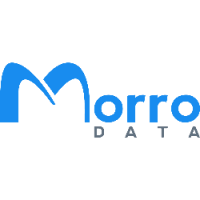Data Governance in the Cloud: Best Practices and Considerations
Data Governance in the Cloud: Best Practices and Considerations
Data governance is the secret ingredient that transforms a jumble of data into a well-orchestrated symphony. It ensures the accuracy, security, and compliance of data, giving organizations the confidence to make informed decisions. Just like a reliable compass, data governance guides businesses through the maze of regulations, protecting sensitive information. It fosters trust among stakeholders and unlocks the full potential of data, fueling innovation, and driving competitive advantage. In a data-driven world, data governance is the key that unlocks the door to success.
What Is Data Governance?
Data governance refers to the overall management, control, and protection of an organization’s data assets. It involves the processes, policies, and frameworks that ensure data quality, integrity, privacy, and security throughout its lifecycle. Data governance aims to establish a set of rules, responsibilities, and procedures to enable effective decision-making, risk management, and regulatory compliance regarding data.
The key components of data governance include:
- Data Policies and Standards: Data governance establishes policies and standards that define how data should be managed, including data classification, data quality requirements, data retention and disposal policies, and data privacy regulations.
- Data Management Processes: Data governance encompasses processes for data integration, data modeling, data access controls, data quality management, and metadata management. These processes ensure that data is accurate, consistent, accessible, and usable across the organization.
- Data Security and Privacy: Data governance includes measures to protect data from unauthorized access, breaches, and misuse. It involves implementing security controls, encryption, access management, and monitoring mechanisms to ensure data privacy and compliance with regulations.
- Data Compliance and Regulatory Requirements: Data governance ensures that data practices align with relevant laws, regulations, and industry standards. This includes compliance with data protection regulations, such as GDPR, HIPAA, and establishing processes for data audits and reporting.
Benefits of Data Governance
Implementing effective data governance brings several benefits to organizations, including:
- Enhanced Data Security: By implementing security controls, access management, and encryption mechanisms, data governance helps protect sensitive data from breaches and unauthorized access.
- Regulatory Compliance: Data governance ensures compliance with data protection and privacy regulations, reducing the risk of legal and financial penalties.
- Increased Data Transparency and Trust: Clear data governance processes and policies promote transparency, accountability, and trust among stakeholders, both internal and external.
- Efficient Data Management: Data governance provides guidelines and frameworks for data management processes, enabling organizations to efficiently handle data integration, storage, and analysis.
- Data-driven Decision-Making: With proper data governance in place, organizations can confidently rely on data insights for decision-making, driving innovation and competitive advantage.
Best Practices for Data Governance in the Cloud
1. Define a Clear Data Governance Strategy
Start by developing a comprehensive data governance strategy that aligns with your organization’s goals and regulatory requirements. Clearly articulate roles and responsibilities, data stewardship, and data lifecycle management processes.
2. Classify and Categorize Data
Classify your data based on sensitivity, regulatory requirements, and business impact. Categorizing data will help determine appropriate access controls, encryption, retention policies, and backup strategies.
3. Establish Data Access Controls
Implement strong access controls to restrict data access to authorized personnel. Utilize authentication mechanisms, role-based access controls (RBAC), and robust identity and access management (IAM) solutions to ensure appropriate data access privileges.
4. Ensure Data Security
Implement encryption both in transit and at rest to protect sensitive data from unauthorized access. Leverage encryption technologies offered by cloud service providers and regularly review and update encryption keys for added security.
5. Monitor and Audit Data Usage
Implement monitoring and auditing mechanisms to track data usage and detect any anomalies or unauthorized activities. Use logging and monitoring tools to generate alerts and maintain an audit trail for compliance purposes.
6. Data Privacy and Compliance
Understand and comply with relevant data protection regulations, such as the General Data Protection Regulation (GDPR). Ensure that your cloud service provider adheres to necessary compliance standards and provides adequate data privacy measures.
7. Backup and Disaster Recovery
Develop a robust backup and disaster recovery strategy to safeguard against data loss or system failures. Regularly backup your data and test the restoration process to ensure its effectiveness.
Cloud NAS File Services
Morro Data CloudNAS offers a secure cloud-based file server solution that aligns with the principles of data governance. By leveraging CloudNAS, organizations can centralize their data storage, implement proper access controls, and ensure data security and compliance.
CloudNAS integrates seamlessly with popular cloud storage providers like AWS and Microsoft Azure, providing scalable and cost-effective storage solutions accessible from anywhere. Its user-friendly web interface simplifies setup and management. With features like file sync and file lock, RTC can collaborate seamlessly across different locations, ensuring data integrity and version control.
Data security is a top priority for CloudNAS, offering enterprise-grade protection through encryption in transit and at rest, two-factor authentication, access controls, and file versioning for rapid recovery. It supports authentication methods like Active Directory and Azure AD, ensuring secure data access for authorized personnel.
By utilizing Morro Data CloudNAS as part of their data governance strategy, organizations can achieve centralized and secure data management, seamless collaboration, and data security. It enhances data governance efforts by providing a reliable and scalable infrastructure to support effective data governance practices, ultimately enabling organizations to harness the full potential of their data while maintaining compliance and security.
